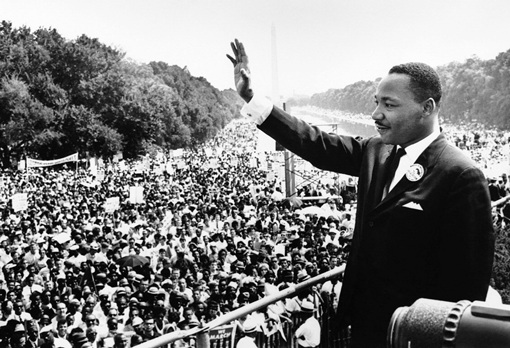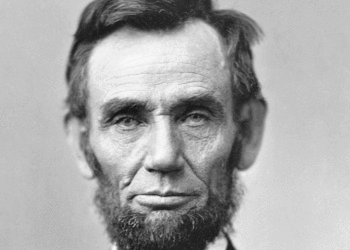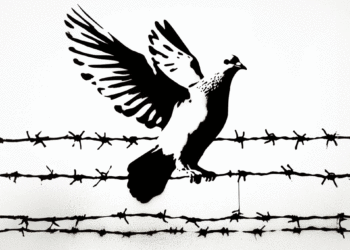A local Jewish community leader offers his reflections on the 50th anniversary of the historic civil rights event
(Editor’s Note: Max Fallek delivered this speech at an Aug. 24 commemoration event at the Sabathani Community Center in Minneapolis, which was sponsored by the Rev. Dr. Martin Luther King, Jr. Legacy Advisory Council. Some minor changes have been made to the text.)
By MAX FALLEK
We come together on this day, which marks the 50th anniversary of the March on Washington — a day of beginning for a great crusade, 150 years almost to the day when President Abraham Lincoln declared an end to slavery. It is a day in which we can rededicate ourselves to bringing an end to racial discrimination in its many forms: employment, housing, voting, education or wherever else it exists.
Fifty years ago, 58 of us from all walks of Minnesota life — ordinary people, black and white, representing many nationalities and religions, mothers, fathers, business people, educators and politicians — left for Washington, D.C.
Among those in the group were Minneapolis Mayor Arthur Naftalin; religious leaders such as Rev. Stanley King, Rev. Father T.T. Taylor, Rev. Rollie Robinson and Rabbi Jerome Lipnick; Cecil Newman, editor and publisher of the Minnesota Spokesman-Recorder; civil rights activist Josie Johnson; and, of course, Matt Little, who organized our trip and provided us with spiritual and emotional guidance. I represented Temple Israel of Minneapolis.

I will never forget boarding the Northwest Orient plane in the wee hours of the morning, as I carried one of our Minnesota signs and copies of our “Minnesota Rouser” (the fight song of the University of Minnesota), which I passed out to everyone on the plane. I had taken it upon myself to be the cheerleader for our group.
While waiting for the plane to take off, with the motors fully revved, no one was talking. As I looked around the plane, one could sense the high emotions in the air. Some people were in quiet solitude or prayer; others were fearful of what might await them.
For me, I had thoughts of what the president of my company had said to me: “Max, you should not go and do this to your family, for there probably will be riots and who knows what may happen.” But I also thought of what my wife said: “This is what we believe in, you have to go.”
Underlying all of this, was the complete feeling of excitement by all 58 of us, knowing what we were about to do would be forever etched in the annals of American history.
Upon arriving at Washington’s National Airport, we were greeted by buses to take us to the First Congregational Church, where we were treated to hot coffee, sandwiches, soup, and homemade pies and desserts that had been set up by the national committee and Sen. Hubert Humphrey’s office.
Shortly thereafter, we were greeted by Sens. Humphrey and Eugene McCarthy, and Congressman Don Fraser. With the arrival of each, we broke out in applause and the singing of the “Minnesota Rouser.” What a beautiful scene.
A few minutes later, Robert Forsythe, Minnesota GOP chairman, and Rhoda Lund, GOP national committeewoman, appeared. I don’t know where the time went, but suddenly the witching hour came upon us to begin to march.
Sens. Humphrey and McCarthy held our Minnesota banner and led us onto the street. At almost every street corner we were met by another marching group carrying banners from their states or cities, or industrial, labor, religious or nonprofit organization. We were all holding hands and singing “We Shall Overcome.”
Who can ever forget those immortal words:
“We shall overcome, we shall overcome,
deep in my heart, I do believe, we shall
overcome some day.
Black and white together, black and white
together, deep in my heart I do believe, we shall overcome some day.”
It was truly awesome.
When we arrived at the Washington Monument grounds, we were escorted to our designated spot. The atmosphere was electrifying — tens of thousands of people, all singing “We Shall Overcome” and “We Shall Not Be Moved.”
The program began with our national anthem and opening remarks by Mrs. Medgar Evers. That was followed by speeches from John Lewis, then chairman of the Student Nonviolent Coordinating Committee and now a U.S. congressman; Walter Reuther, of the AFL-CIO; James Farmer, of CORE; Whitney Young, of the Urban League; the NAACP’s Roy Wilkins; and Rabbi Joachim Prinz, of the American Jewish Congress, who spoke of our own Jewish yearning for freedom from slavery and bondage. This was followed by the beautiful voice and songs of Mahalia Jackson.
Then silence suddenly fell over this, the largest assembly of people ever to gather in our nation’s capital. And Rev. Martin Luther King took the microphone.
Each word out of his mouth was like the purest pearl one could find in our expanse of oceans. Taking us through each step of where we were and where we wanted to be was not only spellbinding but exhilarating.
Finally, the program concluded with our nonviolent pledge and call for action, which included comprehensive and effective civil rights legislation, withholding of federal funds where discrimination exists, banning housing discrimination, guaranteeing minimum wages and so on.
Senator Humphrey’s letter to me best sums up what the March accomplished:
Dear Max,
The March on Washington was a great experience for me as I am sure it was for you. This was truly a great day for America. I want you to know how proud I was of our Minnesota delegation for your dedication to civil rights, which brought you to Washington.
As I am about to close my remarks, I offer this ancient Hebrew prayer of commemoration, the Shecheyanu:
“Baruch ata Adonai Eloheinu melech ha’olam Shecheyanu v’kiy’manu v’higyanu lazman haze.
Blessed are You O Lord our God, Ruler of the Universe, who has sanctified us and enables us to celebrate this wondrous occasion together”
— that being to celebrate this, the 50th anniversary of the March on Washington for Jobs and Freedom and the opportunity to rededicate ourselves to ending discrimination wherever it exists.
In closing, I offer the remarks of the Rev. Dr. Martin Luther King at the end of his “I Have a Dream” speech from 50 years ago, almost to the day: “I have a dream that one day… all of God’s children, black and white, Jews and Gentiles, Protestants and Catholics, will be able to join hands and sing in the words of the old Negro spiritual: ‘Free at last! Free at last! Thank God Almighty, we are free at last.’”
***
According to the AJW of Aug. 23, 1963, Fallek was one of six local Jewish community members who took part in the March on Washington. In addition to Rabbi Jerome Lipnick, of Adath Jeshurun, participants were Rabbi Moses B. Sachs, of B’nai Abraham Synagogue; William Budd, executive director of the Jewish Community Center of Greater Minneapolis; Mrs. Shirley Ricketts; and Mrs. Zetta Feder.





















Comments 0